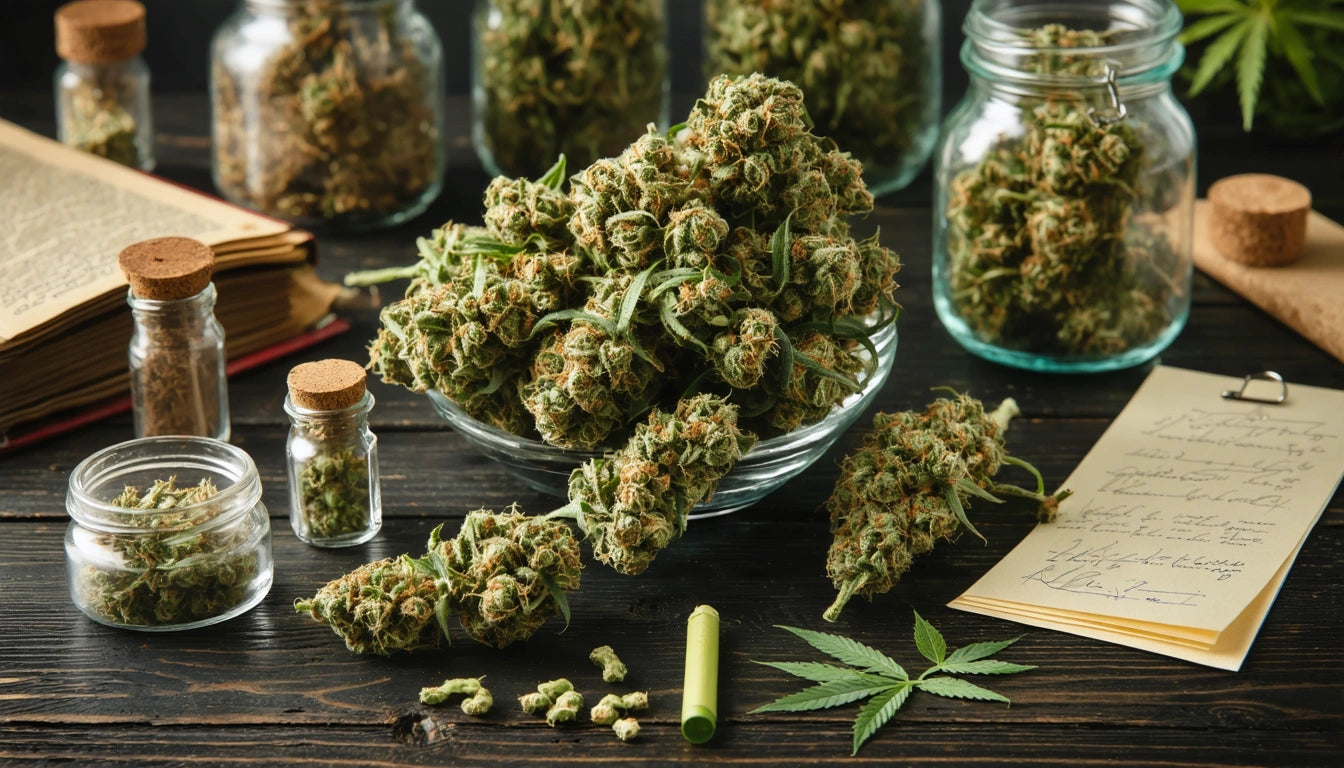Table of Contents
- The Science Behind the Munchies: How Cannabis Affects Your Appetite
- THC and Your Brain: The Hunger Hormone Connection
- How Cannabis Enhances Sensory Perception of Food
- Different Cannabis Strains and Their Effects on Appetite
- Managing the Munchies: Practical Strategies
- Medical Applications of Cannabis-Induced Appetite Stimulation
Why Does Cannabis Use Lead to Increased Appetite and Munchies?
The relationship between cannabis consumption and sudden food cravings, commonly known as "the munchies," is well-documented among users. This phenomenon has become so culturally ingrained that it's often portrayed in media and discussed in cannabis communities worldwide. But what exactly causes this intense hunger sensation, and why does weed give you the munchies when other substances don't trigger the same response?
The Science Behind the Munchies: How Cannabis Affects Your Appetite
Cannabis contains over 100 cannabinoids, but tetrahydrocannabinol (THC) is primarily responsible for increasing appetite. When consumed, THC interacts with the endocannabinoid system (ECS), a complex cell-signaling system that plays a role in regulating various functions, including appetite, mood, and memory.
The ECS contains cannabinoid receptors throughout the body, with CB1 receptors concentrated in the brain and central nervous system. When THC binds to these receptors, it triggers a cascade of effects, including appetite stimulation. This is why regular cannabis users often experience intense hunger shortly after consumption.
According to research on cannabis and hunger mechanisms, THC specifically targets areas of the brain that control appetite regulation, creating a perfect storm for increased food consumption.
THC and Your Brain: The Hunger Hormone Connection
One of the primary ways THC increases appetite is by affecting ghrelin, often called the "hunger hormone." Under normal circumstances, ghrelin levels rise when your stomach is empty and fall after eating. However, THC can trigger ghrelin production regardless of your actual hunger state.
Additionally, cannabis influences neurons in the hypothalamus that typically signal fullness. When these neurons are affected by THC, they essentially reverse function and promote hunger instead of signaling satiety. This explains why you might feel hungry even shortly after eating a full meal when under the influence of cannabis.
How Cannabis Enhances Sensory Perception of Food
Beyond just making you hungry, cannabis enhances the sensory experience of eating. THC increases sensitivity to smells and flavors by interacting with the brain's olfactory bulb, enhancing your sense of smell and, by extension, taste. This is why foods often seem more flavorful and aromatic when you're experiencing the munchies.
Cannabis also increases dopamine release when eating, making the experience more pleasurable than usual. This combination of heightened senses and increased pleasure creates a powerful drive to eat that can be difficult to resist, as detailed in this comprehensive guide on marijuana's effects.
Different Cannabis Strains and Their Effects on Appetite
Not all cannabis strains affect appetite equally. Indica-dominant strains often produce stronger munchies than sativa-dominant varieties due to their specific cannabinoid and terpene profiles. Strains high in the terpene beta-caryophyllene, for instance, may enhance THC's appetite-stimulating effects.
Some modern strains are specifically bred to either enhance or minimize the munchie effect:
- Appetite-stimulating strains: Girl Scout Cookies, Granddaddy Purple, Northern Lights
- Reduced munchie strains: THCV-rich varieties like Doug's Varin, Durban Poison
When packaging these different varieties, it's important to use secure containers with proper child-resistant lids to ensure safety, especially for products intended for medical appetite stimulation.
Managing the Munchies: Practical Strategies
For recreational users who want to enjoy cannabis without overindulging in food, several strategies can help manage the munchies:
- Eat a balanced meal before consuming cannabis
- Keep healthy snacks readily available
- Stay hydrated with water or herbal tea
- Plan activities that don't revolve around food
- Choose strains with lower THC or higher CBD content
Some users also report that being mindful of the munchie sensation and acknowledging it without automatically responding can help reduce impulsive eating. For more detailed strategies, this resource offers effective approaches to prevent munchies.
Medical Applications of Cannabis-Induced Appetite Stimulation
While recreational users may see the munchies as a side effect, this appetite-stimulating property has significant medical applications. Cannabis-based medications are prescribed to patients suffering from appetite loss due to:
- Cancer treatments and chemotherapy
- HIV/AIDS-related wasting syndrome
- Eating disorders
- Certain psychiatric medications with appetite-suppressing side effects
Dronabinol (Marinol), a synthetic form of THC, has been FDA-approved specifically for treating anorexia associated with weight loss in patients with AIDS and for nausea and vomiting associated with cancer chemotherapy.
Understanding why pot gives you the munchies has led to targeted therapeutic applications that benefit patients struggling with nutrition and weight maintenance. The appetite-stimulating effect that might be inconvenient for recreational users can be life-changing for those with medical needs.
In contrast to cannabis users, do sober people get the munchies? While everyone experiences hunger and food cravings, the intense, specific hunger sensation triggered by cannabis is unique to its interaction with the endocannabinoid system. Non-cannabis users may experience hunger pangs or cravings, but these typically follow normal physiological patterns related to blood sugar levels, meal timing, and genuine nutritional needs rather than the artificially stimulated hunger caused by THC.
As cannabis research continues to evolve, scientists are working to better understand the complex relationship between cannabinoids and appetite regulation, potentially leading to more targeted therapies for both appetite stimulation and suppression depending on patient needs.











Leave a comment
All comments are moderated before being published.
This site is protected by hCaptcha and the hCaptcha Privacy Policy and Terms of Service apply.